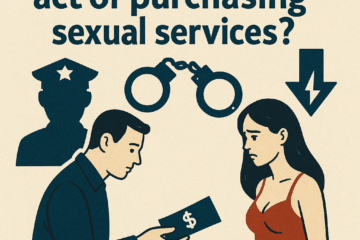What is Debit Card and Credit Card fraud?
Table of contents
In today’s digital world, understanding the nuances of card fraud is crucial for everyone who uses debit or credit cards. Both types of card fraud, although distinct in their mechanisms, pose significant risks to personal financial security. Debit card fraud typically occurs when someone gains unauthorized access to your debit card or its information, leading to unauthorized transactions both in physical stores and online, as well as cash withdrawals. Credit card fraud, while similar in its unauthorized use of card information, often involves additional tactics like hacking into databases or tricking cardholders into using insecure websites. As these fraudulent activities continue to evolve, it’s essential to stay informed about how they occur and the steps one can take to prevent them. This combined overview of debit and credit card fraud aims to shed light on these pressing issues, offering a clear understanding of the tactics used by fraudsters and the measures you can take to protect yourself.
Debit Card Fraud
Proactive Strategies to Prevent Debit Card Fraud
Modern debit cards feature a computer chip that, along with your PIN, enhances transaction security. This technology provides a strong defense against fraud if your card is stolen. For added protection, ensure your PIN is both confidential and difficult to guess. Avoid using personal details like your birthday or social insurance number as your PIN. It’s critical to never share your PIN with anyone, even family members or partners. Memorize your PIN instead of writing it down. If you must write it, store it in a secure place away from your card or wallet. Changing your PIN regularly is a wise practice to prevent unauthorized access. If you suspect someone else knows your PIN, immediately contact your financial institution to change it. Be mindful that sharing your PIN could make you responsible for any unauthorized transactions conducted by others, reinforcing the importance of keeping your PIN private and secure at all times.
Setting Transaction Limits for Added Security
Importance of Adjusting Daily Transaction Limits Your debit card comes with a preset daily limit, which caps the amount of money you can spend or withdraw from your account each day. This limit includes both ATM withdrawals and in-store transactions. If you believe that your current daily limit is higher than necessary, you can contact your financial institution to adjust it downwards. Lowering your daily limit can be a strategic move to minimize potential financial damage in case your card is compromised.
Best Practices for Debit Card Safety
- Store your debit card securely and never lend it out.
- Use chip transactions by inserting your card instead of swiping.
- Cover the keypad while entering your PIN at terminals or ATMs.
- Keep your debit card in sight and in possession during transactions.
- Always collect your debit card and receipt after transactions.
- Stay focused during transactions; ignore distractions.
- Regularly check your account statements for accuracy.
- Keep both paper and electronic copies of statements securely.
- Immediately contact your bank if your card is lost, stolen, or stuck in an ATM.
Actions to Take If Debit Card Fraud Occurs
Responding to Debit Card Fraud Incidents If you become a victim of debit card fraud, it’s important to take immediate and structured action. Document the specifics of the fraudulent activity and how you first became aware of it. Promptly contact your financial institution to report the fraud and make a note of the representative you speak with, including the date and time of the conversation. Preserve any documents or evidence that might be relevant to an investigation. It’s also advisable to file a complaint with your local police service. If you suspect that a particular company, such as your telephone service provider, has experienced a data breach, contact them directly. Additionally, report the incident to the Canadian Anti-Fraud Centre, which is a joint initiative of the Royal Canadian Mounted Police, Ontario Provincial Police, and the Competition Bureau of Canada. The Centre serves as a central national repository for fraud data and provides valuable resources for fraud prevention and reporting.

Credit Card Fraud
Safeguarding Against Credit Card Fraud
Key Strategies for Credit Card Security Similar to debit cards, credit cards in Canada now feature a computer chip for enhanced transaction security. This chip works in conjunction with your PIN to verify that you authorize each transaction, providing a significant layer of protection against fraud if your credit card is stolen. It’s important to note that credit cards with chips also have magnetic stripes, enabling their use in countries where chip-reading technology is not yet prevalent. To protect yourself from credit card fraud, it is crucial to select a PIN that is challenging for others to guess and to keep this PIN confidential. Regularly changing your PIN is also a recommended practice. Some financial institutions now offer the option to pay using a mobile device, such as a smartphone or tablet. Even when using this advanced payment method, maintaining the confidentiality of your PIN remains essential.
Protecting Credit Card Information in Public and at Home
Preventive Measures in Public Spaces and at Home To safeguard against credit card fraud in public places, always keep your credit card secure and limit the number of cards you carry. When entering your PIN at an ATM or payment terminal, use your hand or body to shield the keypad from view. Keep your credit card visible and under your control during transactions. If you notice anything suspicious about a payment terminal or ATM, report it immediately to the business’s head office and your credit card issuer. At home, enhance your credit card security by installing a lock on your mailbox to prevent theft of credit card statements or replacement cards. As soon as you receive a new credit card, sign the back of it. When disposing of old credit cards, make sure to destroy them by cutting them up. Keep your credit card statements in a secure place and obtain written confirmation from your credit card issuer when you cancel a card.
Online and Telephone Security for Credit Card Users
To secure your credit card transactions:
- Use websites with “https” or a padlock icon for secure online transactions.
- Regularly update firewall, anti-virus, and anti-spyware software.
- Avoid sending credit card information via email.
- Be cautious on public computers; clear history and cache after use.
- Be skeptical of telephone requests for credit card information; legitimate companies typically don’t ask over the phone.
- Verify company authenticity using the phone number on your card, not numbers from unsolicited emails or calls.
- Share credit card details only in private and with trusted parties.
- Consult the Better Business Bureau for company legitimacy doubts.
- These steps help protect credit card information online and during phone transactions.
Additional Tips to Enhance Credit Card Security
Extra Steps for Comprehensive Credit Card Protection For an added layer of security against credit card fraud, consider making a list of all your credit cards along with the phone numbers to call in case of theft or loss. Never lend your credit card to others. If your credit card issuer provides convenience cheques, store them in a secure location. Report a lost or stolen card to your credit card issuer immediately. It’s also advisable to review your credit card statements each month to identify any discrepancies or unauthorized transactions. Promptly report any transactions that you did not make or approve to your credit card issuer. Regularly check your credit report at least once a year and immediately report any inaccuracies to the respective credit reporting agencies.
Responding to Credit Card Fraud
- Immediately contact your financial institution if you suspect credit card fraud.
- Note the fraud’s details and how you discovered it.
- Record names, dates, and times of conversations with your card issuer.
- Save all relevant documents and evidence.
- File a police report about the fraud.
- Inform any affected companies, like your phone provider, of potential data breaches.
- Contact Equifax and TransUnion to place a fraud alert on your credit.
- Review your credit report for any inaccuracies.
- Report the fraud to the Canadian Anti-Fraud Centre.
Pax Law can help you!
Our team, comprised of experienced criminal lawyers and consultants, is ready and enthusiastic to assist you with any fraud-related issues you may encounter. Please visit our appointment booking page to make an appointment with one of our lawyers or consultants; alternatively, you can call our offices at +1-604-767-9529.
Discover more from Pax Law Corporation
Subscribe to get the latest posts sent to your email.



0 Comments